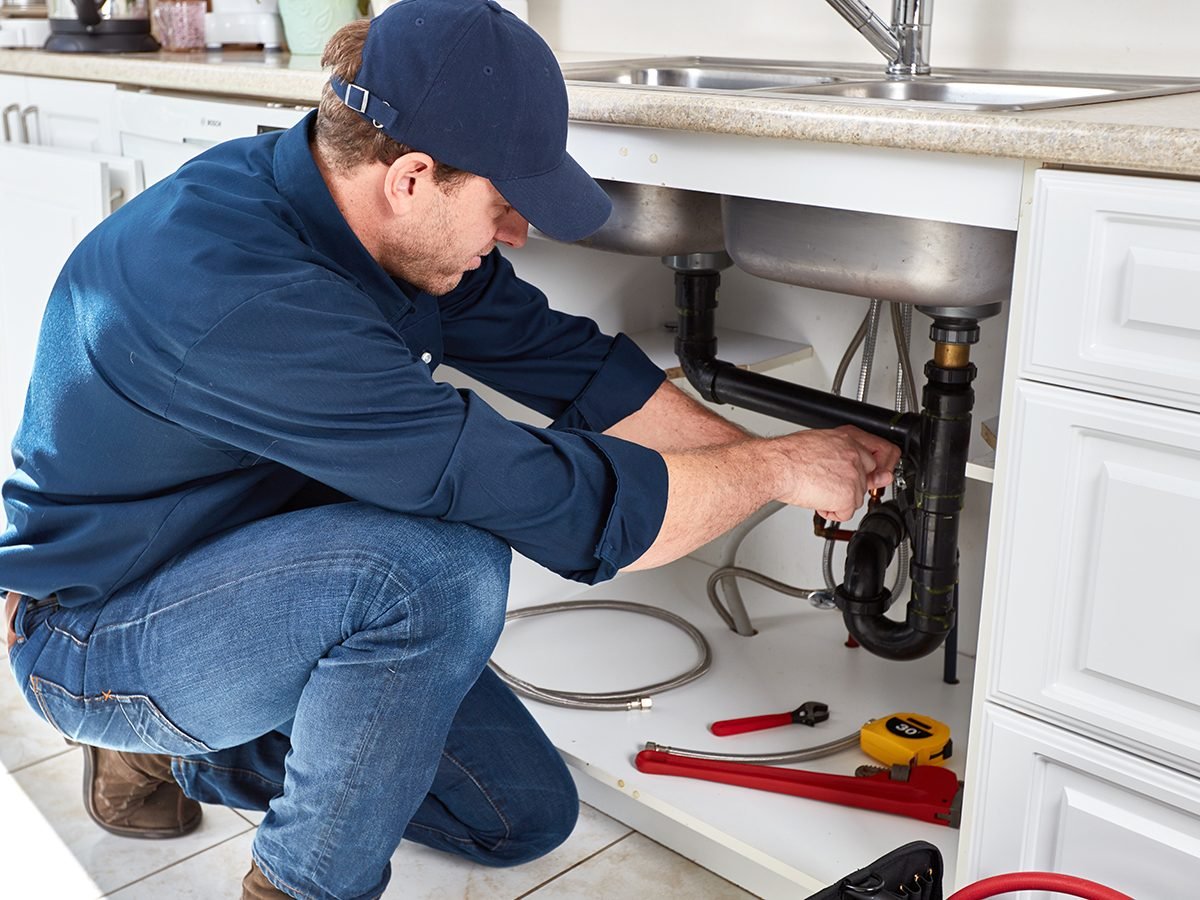
Pro Plumbers Share Their Secrets
Plumbing is something we often take for granted, but without it we wouldn’t have warm showers, toilets that flush or the means to pressure wash the driveway. Not only that, a fully functioning plumbing system is key to sanitation in your home and your community.
“It is a known motto in the plumbing community that the plumber protects the health of the nation,” says Aaron Mulder, owner of Mr. Rooter Plumbing in San Antonio, Texas. “As soon as you don’t have working plumbing systems in a country, things start to deteriorate.”
That’s why, Mulder says, homeowners need to pay attention to the plumbing in their homes. This involves things like fixing leaks in a timely manner, replacing broken parts before they completely fail and regularly checking water pressure.
Perhaps even more importantly, it’s avoiding common behaviours that wreak havoc on a home’s plumbing system. What are those behaviours? We went straight to the plumbers themselves to find out.
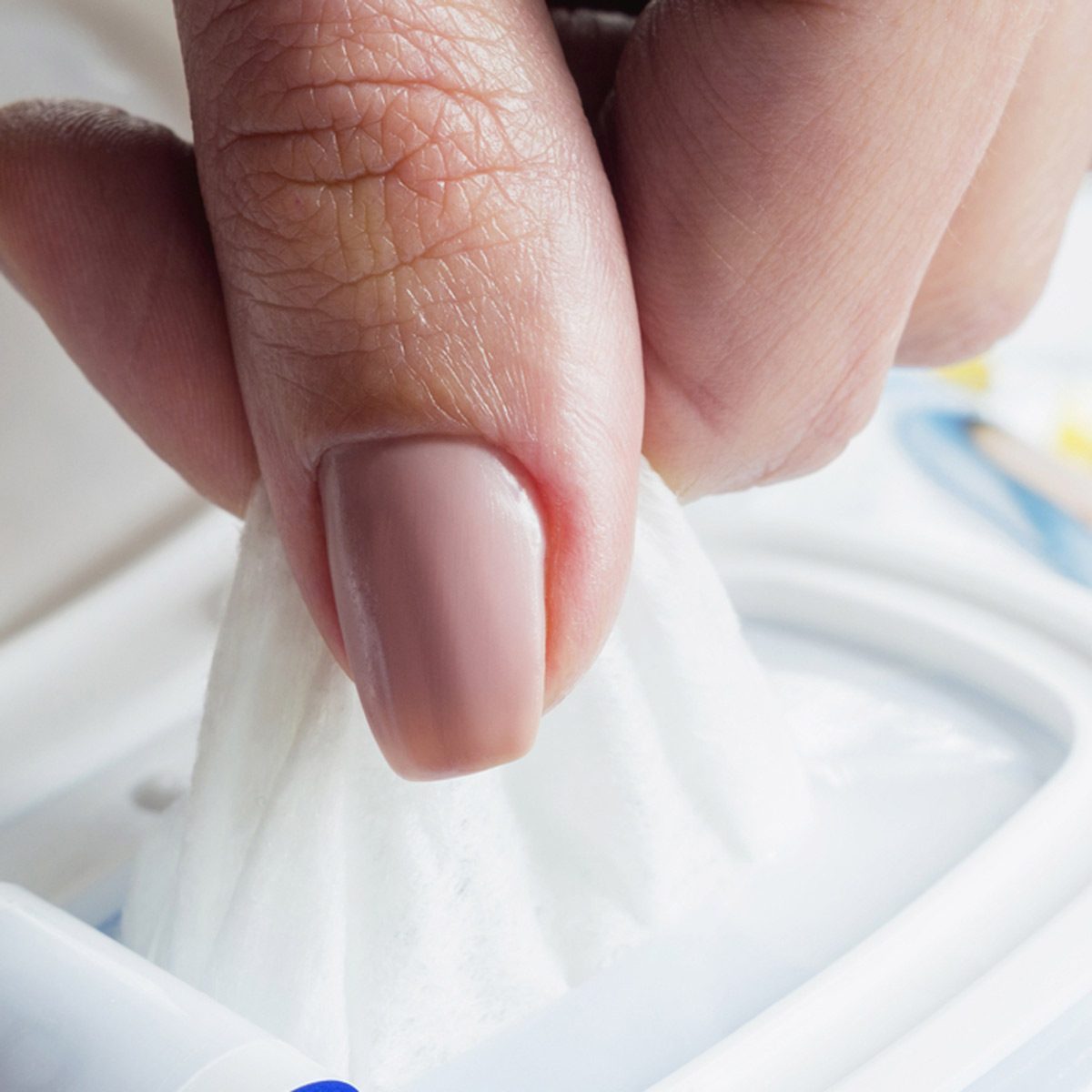
Plumbers Don’t Flush Baby Wipes Down the Toilet
The box may say the wipes are flushable, but the truth is there are only two things that should be ever be flushed—toilet paper and human waste, says Mulder. Everything else, from feminine hygiene products to paper towels and beyond, will undoubtedly clog your pipes—if not right away, eventually.
These items can also clog up the entire sewer system. Over time, this can create a big expensive mess at your city’s sewage treatment plant, not to mention a threat to public health. Instead, do what plumbers do and toss disposable baby wipes in the trash.
Find out more toilet paper alternatives that will definitely clog your pipes.
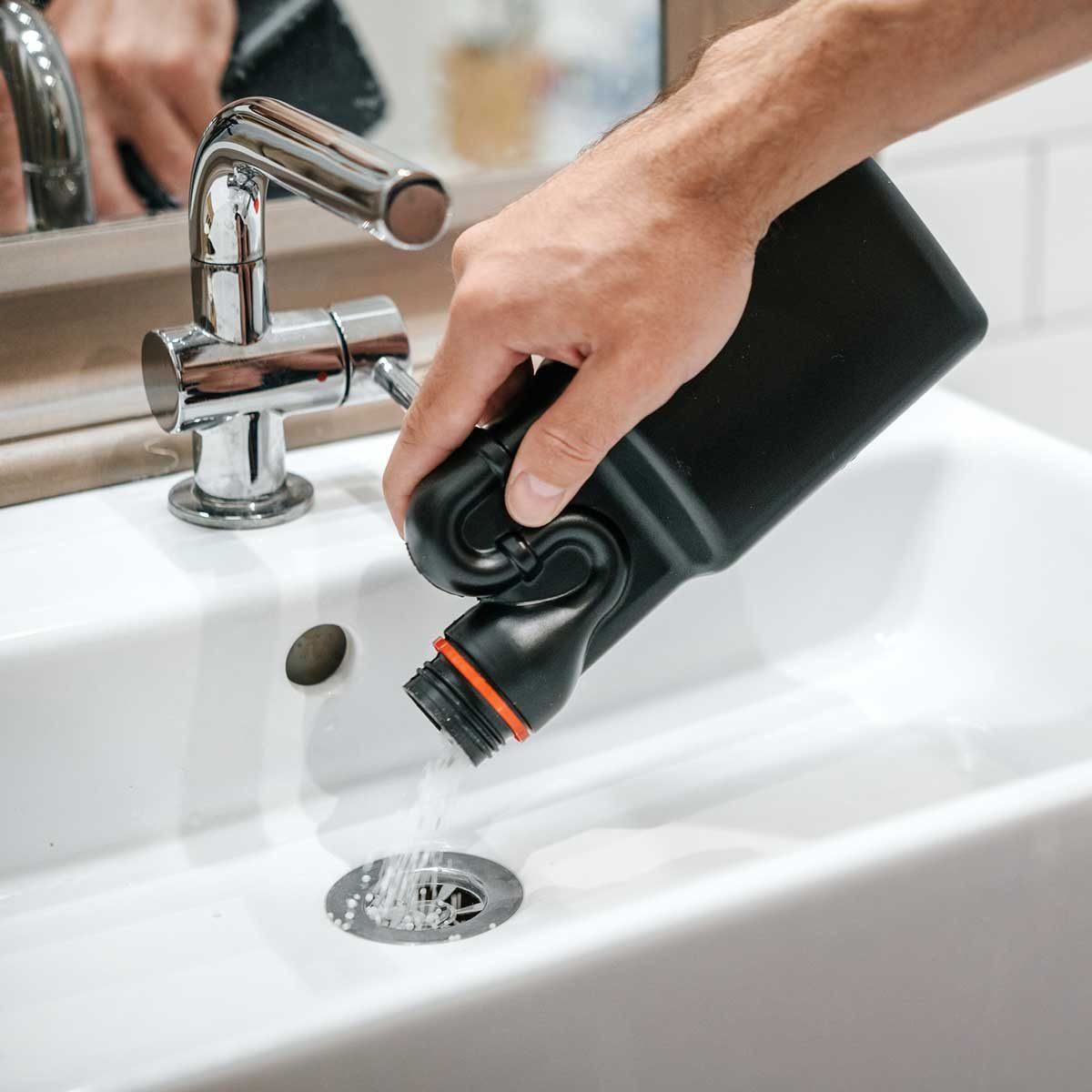
Plumbers Don’t Use Harsh Chemicals in Drains
If you routinely pour a store-bought drain cleaner down the sink to do away with clogs, stop immediately. These cleaners are not just ineffective, they are caustic, says Terry O’Shea, a master plumber with Roto-Rooter in the New York City area. O’Shea says chemical drain cleaners can burn your pipes and your skin, if you touch them.
And the claims that these cleaners dissolve hair? Nope.
“It (might) burn away some of the hair and gunk … but at the end of the day it is not going to stop that buildup from reoccurring,” Mulder says. “It is just (pushing) down to where the chemical didn’t reach.”
What should you do about clogs? Plumber-recommended enzymatic drain cleaners (Mr. Rooter and Roto Rooter each have their own brands) are usually safe, or you can try a drain auger (sometimes called a plumbing snake), O’Shea says. Don’t give in to the temptation to use a hanger for the job though, says Mulder. Anything rigid can damage the pipe and cause a whole slew of issues, like leaks, broken seals, bad smells and bug infestations (yuck!).
Find out how to unclog a toilet without a plunger.
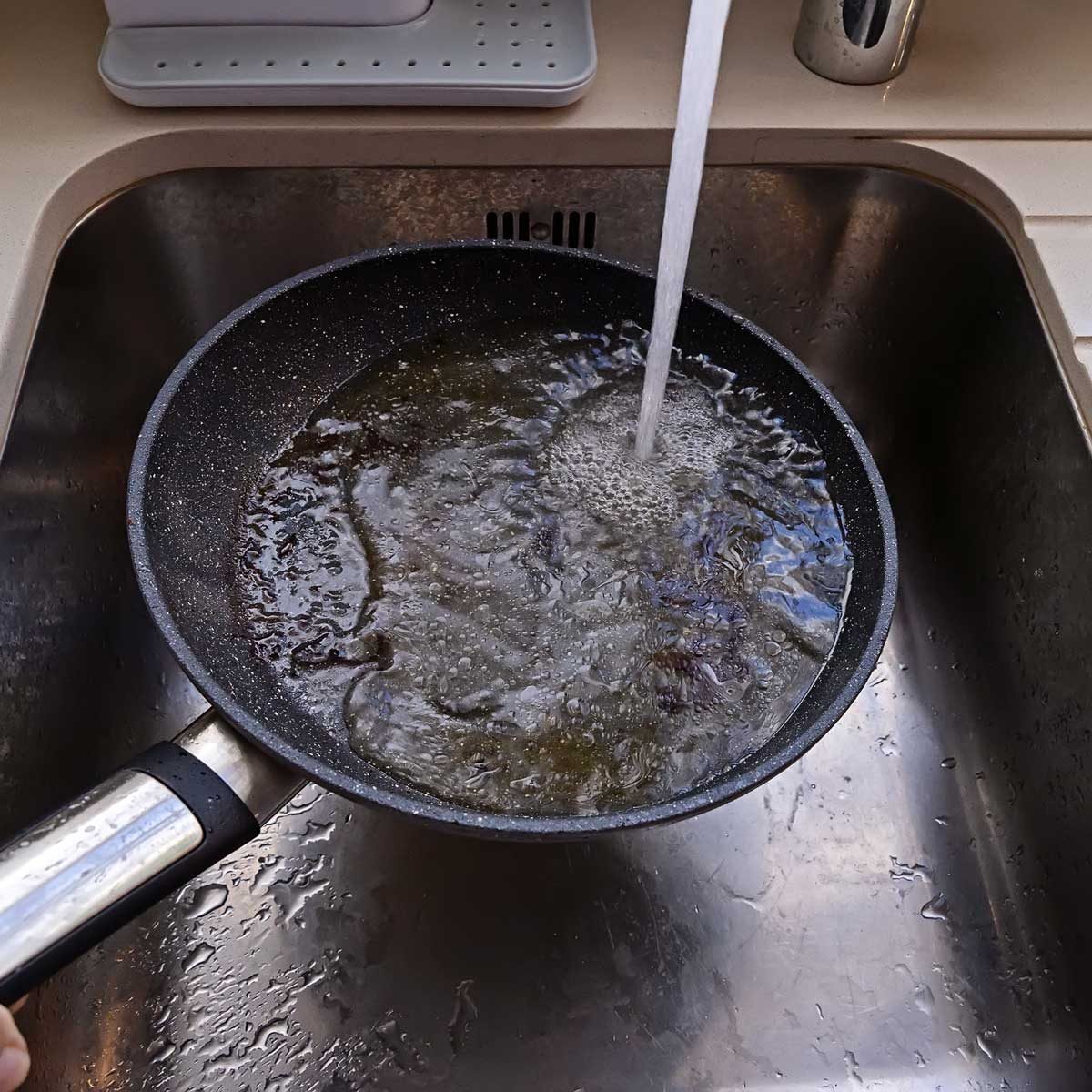
Plumbers Don’t Pour Grease Down the Drain
You just cooked some bacon and need to get rid of the grease. You have a few options, but pouring it down the kitchen sink is not one of them, says Mulder.
Initially, the grease will stick to the walls of your pipes and start clogging your drain. Eventually, some of that grease will make it to the sewer, where it mixes with all the other raw sewage (along with those baby wipes that should have been put in the trash). The result? A disgusting sewer-damaging blob called a fatberg. Last year, waste treatment officials in England discovered a fatberg that was more than 60 metres long.
We know you don’t want to contribute to such a monstrosity. Instead, Mulder advises scraping congealed grease into the garbage can, or pouring warm grease into a can or jar to throw away later. Some people even save grease for further use in the kitchen.
Find out more things you should never pour down the drain.
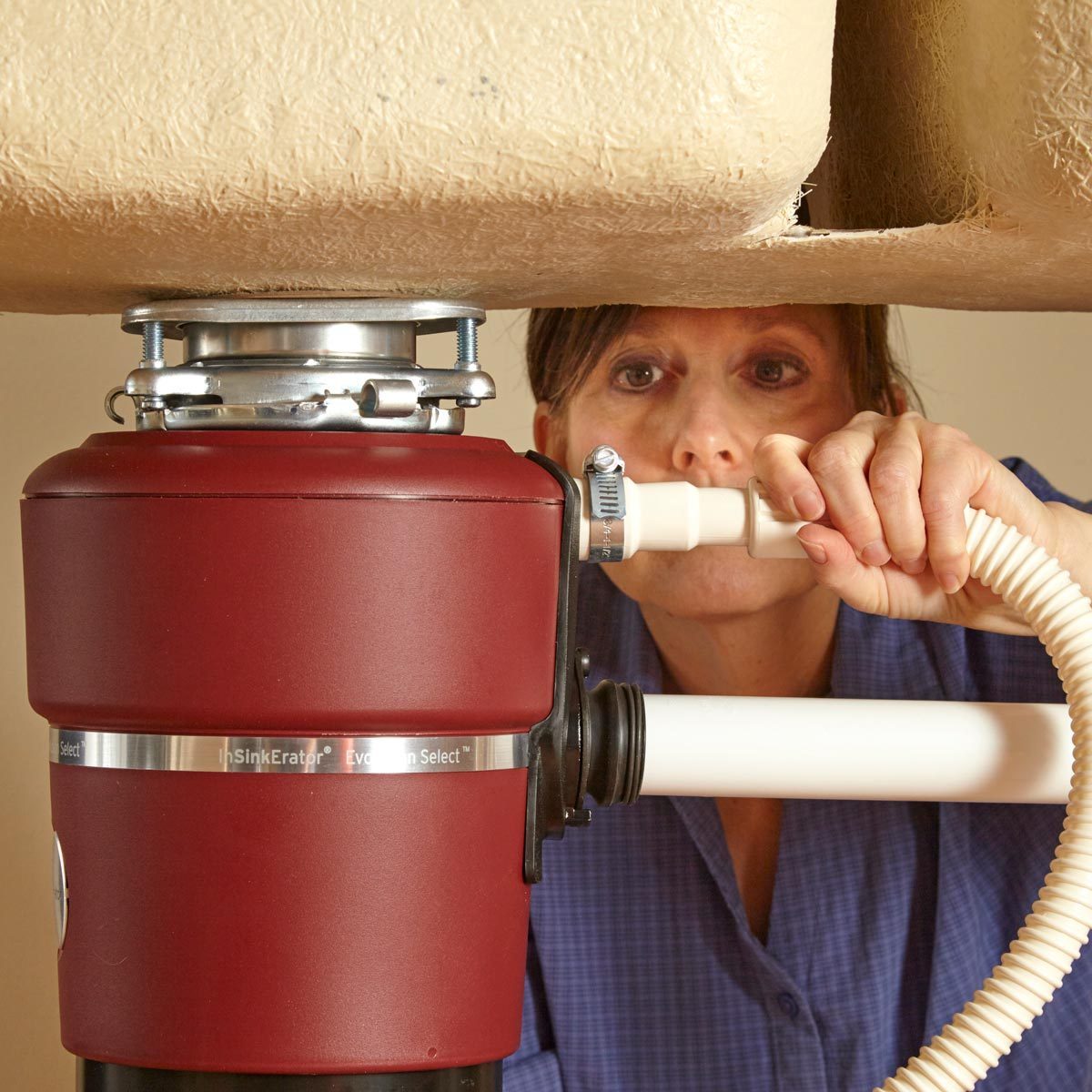
Plumbers Don’t Take the Term ‘Garbage Disposal’ Literally
Despite the name, your sink’s garbage disposal is not meant to dispose of garbage, says Mulder. Small scraps of certain types of food (and the milk at the bottom of your cereal bowl) are OK. But eggshells, hunks of meat and coffee grounds, among other things, should not go down your garbage disposal. (Check out these genius ways to use coffee grounds all around the house.)
“(These items) are overworking the unit, or overheating it,” Mulder says. If you do this continually, Mulder says, it will damage and ultimately ruin the garbage disposal.
And that’s not the only thing. Since the disposal isn’t designed to break down the food, that leftover chicken will rot in your pipes. Before long, you’ll have a unpleasant odour and a dirty job to deal with. Save yourself the trouble and expense by composting or throwing away food scraps.
Don’t miss these genius hacks to get rid of household odours.
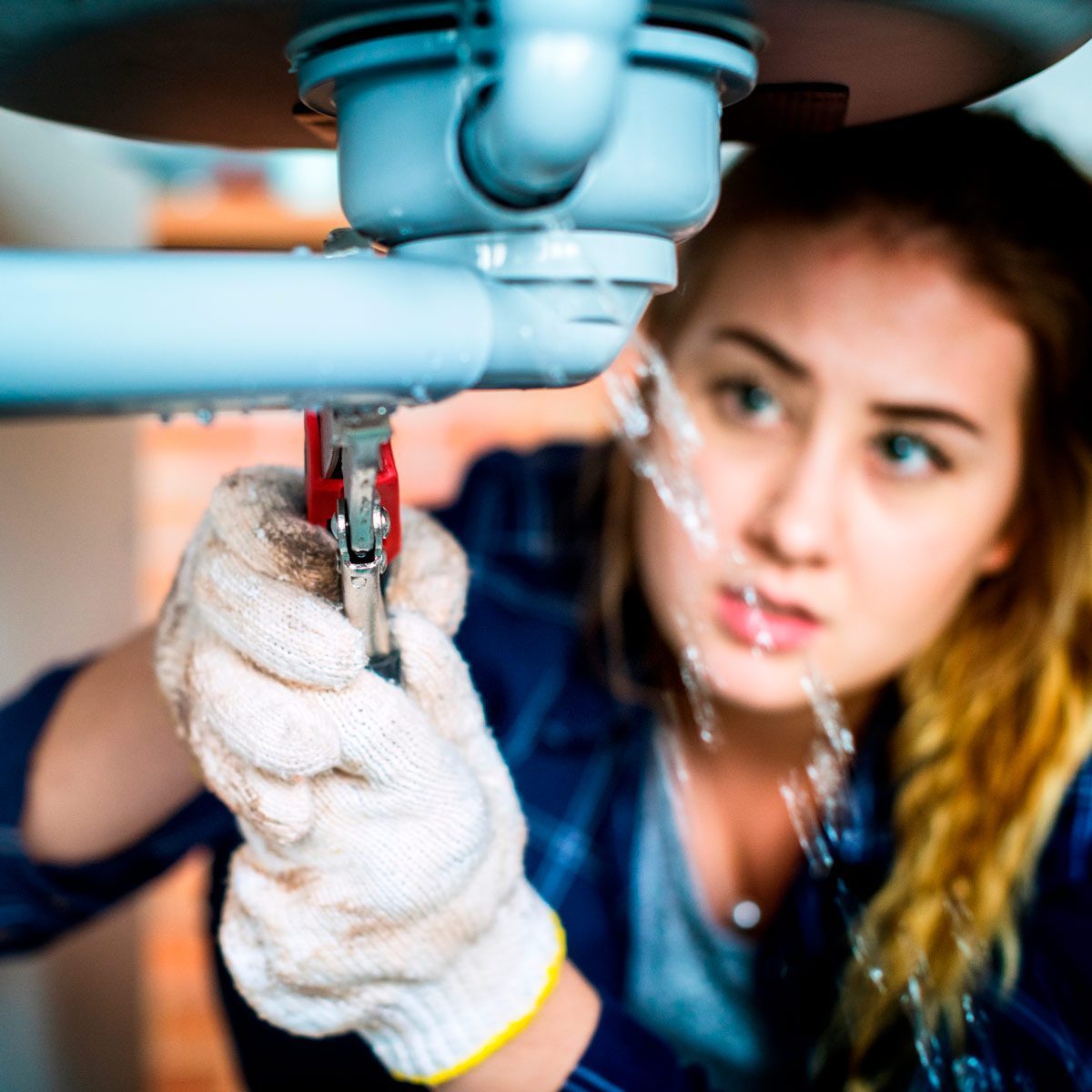
Plumbers Don’t Put Off Preventive Maintenance
Like cars, plumbing systems need regular maintenance even when nothing is amiss. Plumbers know the importance of keeping up on said maintenance in their homes, so they can minimize the possibility of something major going wrong, like a leak, corrosion or a septic tank issue.
Mulder says it is particularly important to do an annual pressure check to make sure your water pressure is in a safe range. The standard maximum is 80 PSI (pounds per square inch), but homeowners should look up the PSI requirements for their region. You can buy a water pressure gauge at your local hardware store or home centre.
Other preventive maintenance activities include checking for leaks and clogs, and making sure you don’t have any broken internal parts in your toilets, sinks or tubs/showers. He also recommends checking your supply lines—a.k.a. the hoses that allow water to travel from the main water line to individual fixtures—to make sure they are still in good shape. Many homeowners, he says, are surprised to find out supply lines are typically only rated for three to five years of use.
Find out 20+ surprising ways you’re shortening the life of your dishwasher.
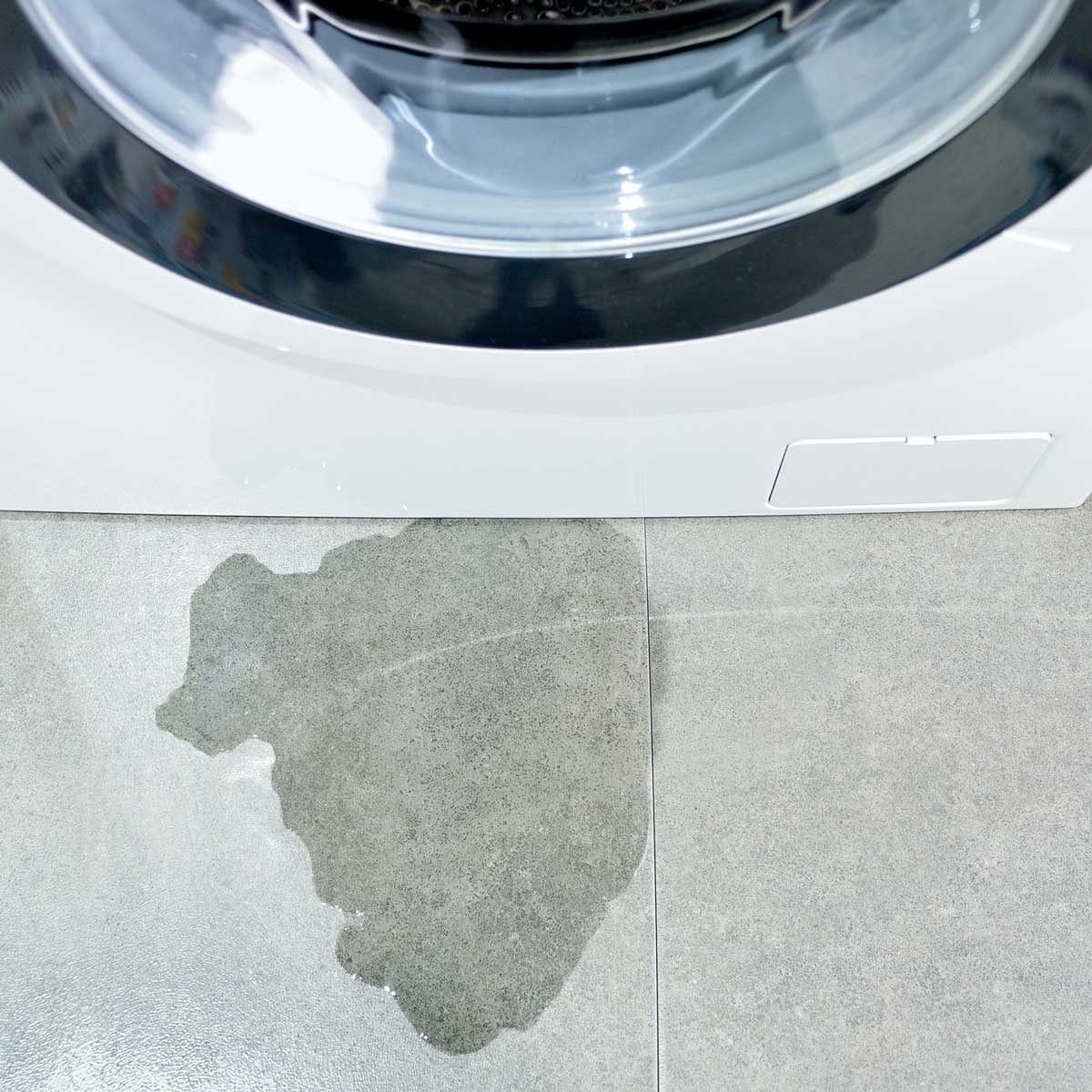
Plumbers Don’t Prolong the Investigation of the Problem
Nobody ever wants to scrap their weekend plans last minute to deal with a plumbing problem. But if you wake up one morning and find a pool of water under your washing machine, it’s wise to deal with it right away, says Mulder. (Make sure you never do this to your washer and dryer.)
“If you think you have a water leak … you definitely want to get it looked at before it becomes a bigger issue,” he says, adding that plumbing problems are not the type that correct themselves over time.
Next, check out 100 home improvement projects you can do by yourself.